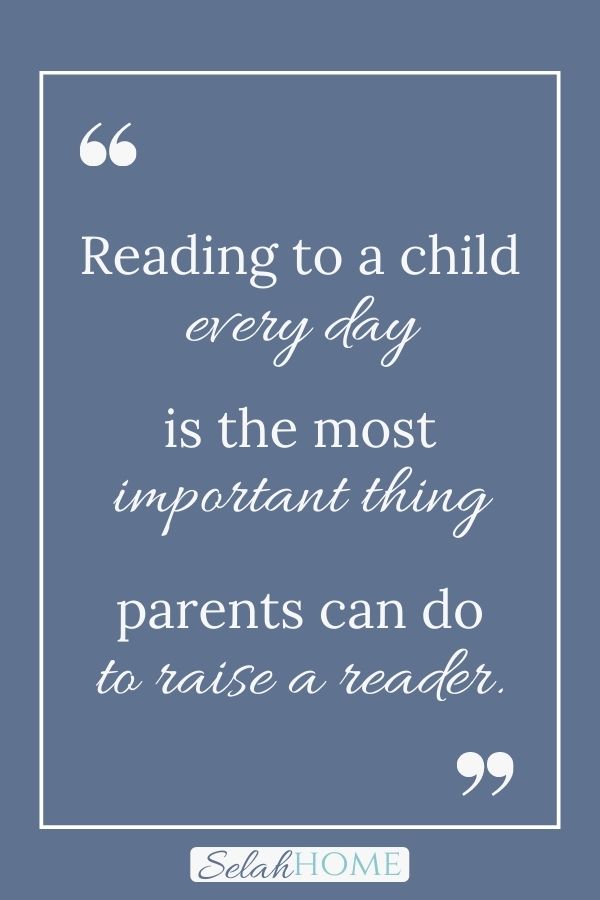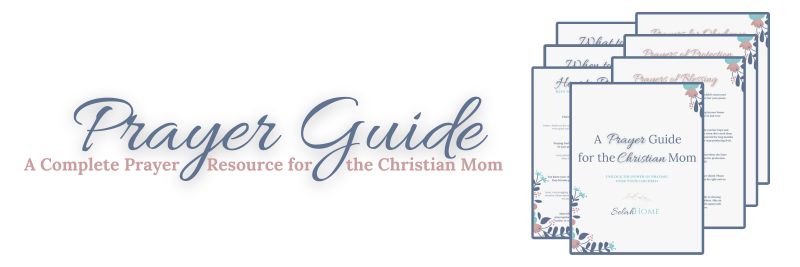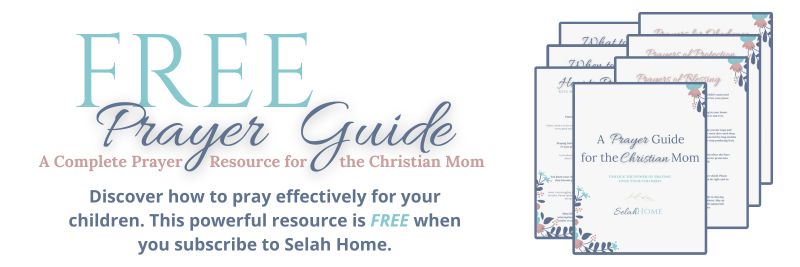It’s one of my favorite memories.
Our youngest daughter sitting in the middle of her bedroom floor before she could even walk. Surrounded by books and jabbering away happily in baby talk.
As an elementary school teacher, the thought of teaching my own kids how to read was always exciting. And because of my background in education, I knew the importance of starting early and being intentional when it came to raising a reader.
Yet, I’ve still been surprised at the many ways instilling that love of reading has benefitted my children in the years since.

A love for books…
Both of our kids really enjoy reading. But our youngest has been a book lover since she was old enough to hold one in her hand.
The same scene repeated itself time and again throughout the stages of her development. As a baby, toddler, and preschooler, I would constantly find her surrounded by books.
I watched as she flipped through the pages, lost in her own world of story.
Long before she could read, she used pictures to make up her own stories. And now that she can actually read the words, a whole new world has opened up.
She delights in books and the adventures they take her on.
The benefits of raising a reader…
Some kids are naturally drawn to books. They pick up reading easily.
But that’s not always the case.
For many others, books aren’t quite so appealing. Or they struggle with learning how to read. And that obviously make it much less enjoyable.
But we all know reading is an essential life skill.
The more a child reads, the better chance they have to be successful in school. Not to mention the host of other benefits reading brings.
And of course, the simple joy of getting lost in a really great book.
The advantages are clear. So, how do parents go about raising a reader?
Here’s five important keys I’ve learned as a teacher and parent.
Keys to instill a lifelong love of reading…
Start early.
It’s never too early to start raising a reader. I began reading to both our girls as soon as they were born. And I know many parents who read to their children when they were still inside the womb!
Obviously as tiny babies, they aren’t participating much. But they’re still listening and watching. And perhaps even more importantly, you’re creating habits that will carry though the rest of childhood.
If you’re looking for book ideas for infants here’s a great choice.
These black and white picture books assist in the development of baby’s eyes and are easier for them to focus on. Many of these books don’t have words, but you can just talk through the pictures you see.
As your child becomes an older baby, transition to sturdy board books with bright pictures. Check out this selection.
And when they get a little bit older, they’ll delight in beautiful picture books with longer stories.
Children with parents who read to them from a very early age are given a head start on literacy success. It may be the single most important thing you can do when raising a reader.
I strongly believe one of the main reasons my kids love to read is because reading together has been a consistent part of our family dynamic from the beginning.
Surround your child with books.
One of the best ways to raise a book lover is to provide unlimited access to books. Place books in strategic places throughout the house. And point them towards those books whenever possible.
We’ve always had a bookshelf or basket of books in each of our kids’ rooms. I also keep books in a basket in our car.
When our girls were babies, I kept a stash of small books by the changing table. I would hand them a book to keep their hands occupied during a diaper change.
When they were busy toddlers, I would place a few small baskets of books in high traffic areas around the house. As they explored from one spot to the next, they would often sit down and sift through those baskets.
We take books on road trips and vacations. We stick them in backpacks for long waits at the doctor’s office. They read while I fix their hair.
Look for any opportunity to put a book in your child’s hands. And if they don’t seem eager or accepting, that’s okay. Just keep the books available. More often than not, curiosity will win out and they’ll pick one up.
Read aloud daily.
My favorite part of our family bedtime routine is curling up on the couch together to read. And our kids love it too! It’s been a part of our evenings since our first child was an infant.
As tiny babies, I read simple board books to them. Through the toddler and preschool years, we chose delightful picture books.
Now that my kids are a little older, our nightly routine includes them briefly reading to me. They pick a short book or a selection from a longer piece and I enjoy listening to them read.
Then, I read from whatever chapter book we’re currently in the middle of.
Reading aloud is a precious part of our bedtime routine. It’s the perfect time to snuggle close and unwind from they day.
If you’re not comfortable reading aloud to your kids, that’s okay. But I encourage you to get outside your comfort zone and give it a try.
The benefits of your child hearing and watching you read are many. As I mentioned above…it may be the most important thing you do for your child’s reading success.

Talk about what you read.
Raising a reader doesn’t just involve reading books with your child. You also need to discuss them!
Talk with your kiddo about what’s happening in the book. If they’re not already engaged in the story, ask questions that might pull them in.
Here’s a few ideas to get you started…
- What do you think will happen next?
- How do you think (character’s name) feels right now?
- Does this part of the story remind you of anything?
- What would you do if you were (character’s name)?
- What’s happening in this picture?
- If you were the author, would you have written the ending differently?
Discussing a story before, during, and after reading helps your child become familiar with how books work. It’s also a great way to increase comprehension and build your child’s vocabulary.
And all of those skills are vitally important to reading success!
Model reading yourself.
You may or may not enjoy reading. But if you want to raise a child that does, you need to model reading yourself.
Let your kids see you reading.
Or talk about something you learned from a book… Or magazine… Or online article. You get the idea.
Regardless of the source, knowing that you prioritize reading will make a huge impact on your child.
So, find a genre or topic that interests you and read away!
Be your child’s first teacher.
You don’t need an education degree to teach. In fact, you’re already highly qualified to be your child’s first teacher simply because you’re the parent!
Take advantage of teachable moments. Especially when it comes to reading.
Point out signs with brand names your child recognizes. Celebrate their efforts to “read” those signs.
Let them cross items off your grocery list by finding the letter each item begins with. Have them help make dinner and “read” the recipe.
Keep magnetic letters on your fridge and encourage them to make words as they play. Give them opportunity to write whenever you can.
Make the public library a frequent stop. Take delight in searching the shelves with your child. And make sure to leave with plenty of books.
Children learn an incredible amount in the first few years of life. Do everything you can to take full advantage of that time.
A bright future…
I’m not sure if my daughter will still be sitting on her floor surrounded by books as a teenager. But I sure hope so. And I think the chances are pretty high.
Regardless, she’s off to a good start.
She’s discovered the power of reading. And the enjoyment books can bring.
Each time she opens a book, she travels to a different time and place.
Rolling prairie hills in pioneer days. Palaces and princesses in the heart of Egypt. A rocket ship on its way to outer space.
She’s only limited by her imagination.
We live in a world that’s becoming more technologically advanced by the day. One where pretty much any question can be answered with the swipe of a finger.
And while all that technology has improved our lives in so many ways, I often wonder how much it’s limited our creativity.
Is the imagination of our children stifled because of the amount of information quickly and readily available? Are the pictures they see in their head and the stories they make up in their play less than they could be because of what they see on a screen?
I’m not anti-technology. Or saying we shouldn’t use it to help our children learn and grow.
But I do think reading a classic novel or award-winning picture book will always have benefits far beyond what a screen can provide.
And I know one thing for sure…a child sitting on the floor surrounded by good, old-fashioned books is something to treasure.






Leave a Reply